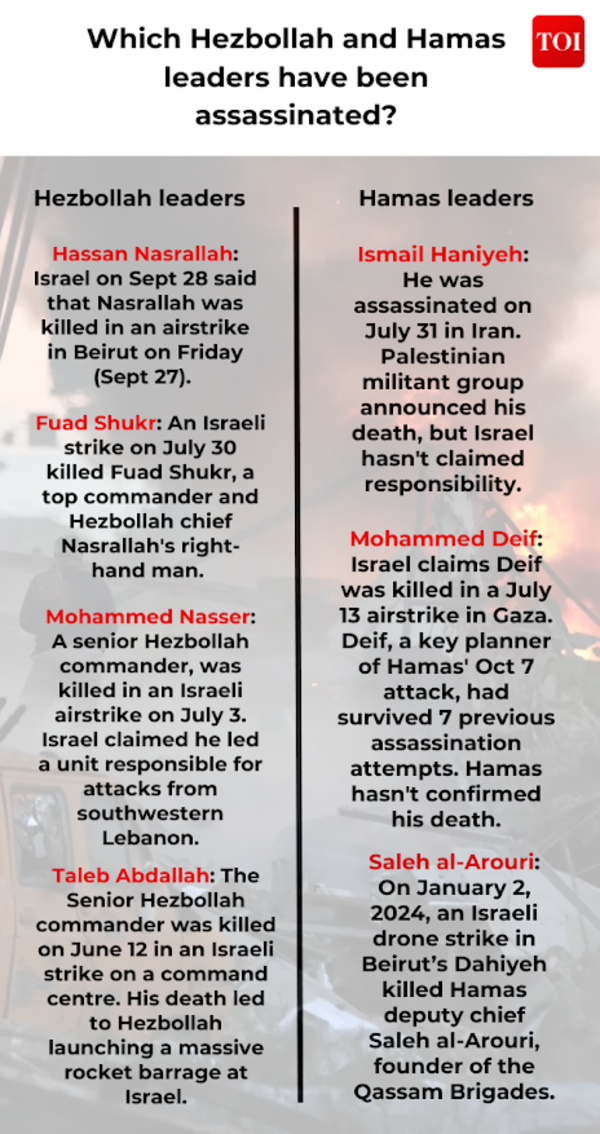
Hezbollah leader Sheikh Hassan Nasrallah was killed by the Israeli forces in an airstrike, the Israel Defense Forces said on Saturday, hours after strikes on Hezbollah headquarters.
“Hassan Nasrallah will no longer be able to terrorize the world,” the Israel Defense Forces (IDF) declared following an airstrike in Beirut’s southern suburbs.
IDF spokesperson Nadav Shoshani confirmed Nasrallah’s death on X, stating, “Hassan Nasrallah is dead.”
Earlier reports indicated that Nasrallah had been the target of Israeli strikes carried out on Friday, which also targeted Hezbollah’s underground headquarters in the area.
The Israeli military stated that a strike targeting Hezbollah’s headquarters in Beirut resulted in numerous deaths and injuries.
Israeli airstrikes destroyed six buildings in the southern suburb of Harek Hreik in Beirut on Friday, marking the most significant strike in the Lebanese capital during nearly a year of conflict between Israel and Hezbollah.
Who was Hassan Nasrallah?
Sheikh Hassan Nasrallah headed Hezbollah for over three decades, making it one of the most powerful militant groups in the middle east.
Born in 1960 into a struggling Shiite family, he pursued theological studies and became involved with the Amal movement, a Shiite political and paramilitary organization, before emerging as one of the founders of Hezbollah.
In 1985, Hezbollah formally declared its formation by releasing an “open letter” that named the US and the Soviet Union as Islam’s main enemies. The letter also called for the “obliteration” of Israel, which it accused of occupying Muslim territories, BBC reported.
The US designated Hezbollah a terrorist organisation in 1997, five years after Nasrallah was chosen as its secretary-general.
LIVE | Hassan Nasrallah’s Last Speech Before Hezbollah HQ Bombing In Beirut | Watch
How Nasrallah reshaped Hezbollah into Israel’s archenemy
Hezbollah was established by members of the Iranian Revolutionary Guard who arrived in Lebanon during the summer of 1982 to combat the invading Israeli forces.
Under Nasrallah’s leadership, Hezbollah played a pivotal role in the war of attrition that resulted in the withdrawal of Israeli troops from southern Lebanon in 2000, ending an 18-year occupation.
In 2006, Hezbollah engaged Israel in a 34-day conflict that ended in a stalemate, which he declared as “divine victory.”

Nasrallah and his support for Palestinian cause
A day after the Israel-Hamas war erupted on October 7, Hezbollah launched attacks on Israeli military posts along the border, labeling it a “backup front” for Gaza.
“We are here paying the price for our front of support for Gaza, and for the Palestinian people, and our adoption of the Palestinian cause,” Nasrallah said in a speech on August 1.
Throughout the conflict, Hezbollah’s leader has claimed that the group’s cross-border strikes have diverted Israeli forces that would otherwise focus on Hamas in Gaza. He said that Hezbollah would not cease its attacks until a cease-fire is achieved in the region.
As tensions escalated in recent weeks, Israel announced a new phase in the conflict aimed at pushing Hezbollah back from the border, allowing thousands displaced from northern Israel to return home.
This escalation included strikes that resulted in the deaths of top Hezbollah military commanders and were linked to the destruction of numerous communications devices, including pagers used by the group, leading to 37 fatalities and thousands of injuries.





